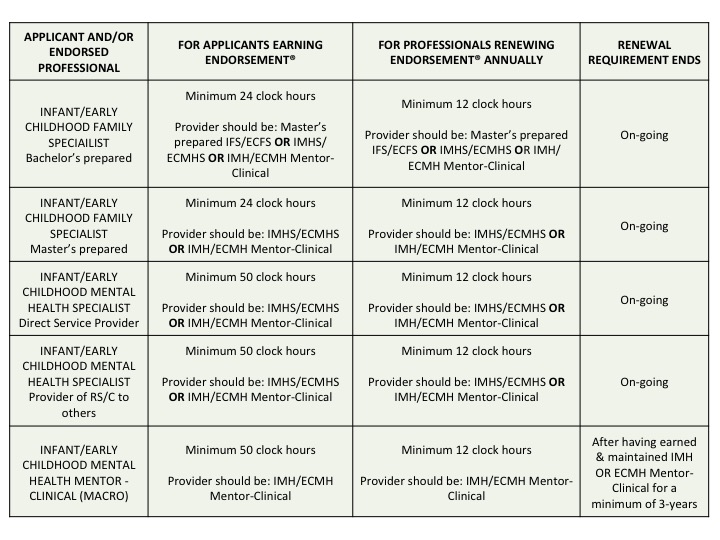
As in relationship-focused practice with families, reflective supervision/consultation (RS/C ) is most effective when it occurs in the context of a relationship that has an opportunity to develop by meeting regularly with the same supervisor/consultant over a period of time. Therefore, CT-AIMH expects that Endorsement® candidates will have received the majority of the required hours from just one source with the balance coming from no more than one other source.
What is RS/C and why might it be beneficial to me? Listen to what some child protective service workers (DCF) and some experienced Reflective Supervisors have to say about it
It is in the best interest of practitioners who promote infant and early childhood mental health, as well as the families they serve, if the reflective supervisor/consultant that they receive meets the Best Practice Guidelines as well as the Endorsement® requirements listed below.
Reflective Supervision/Consultation Requirements* for Endorsement®

*These requirements will be in effect as of January 1, 2019
Please note: Peer supervision (defined as colleagues meeting together without an identified supervisor/consultant to guide the reflective process), while valuable for many experienced practitioners, does not meet the RSC criteria for Endorsement® even if one of the peers has earned Endorsement® as an IMHS or IMHM-Clinical. The provider of RSC is charged with holding the emotional content of the cases presented. The ability to do so is compromised when the provider is a peer of the presenter. Unnecessary complications can arise when the provider of RSC has concerns about a peer’s ability to serve a particular family due to the peer’s emotional response AND the provider and peer share office space, for example.
Copyright © 2023 CT-AIMH
Miranda Creative website